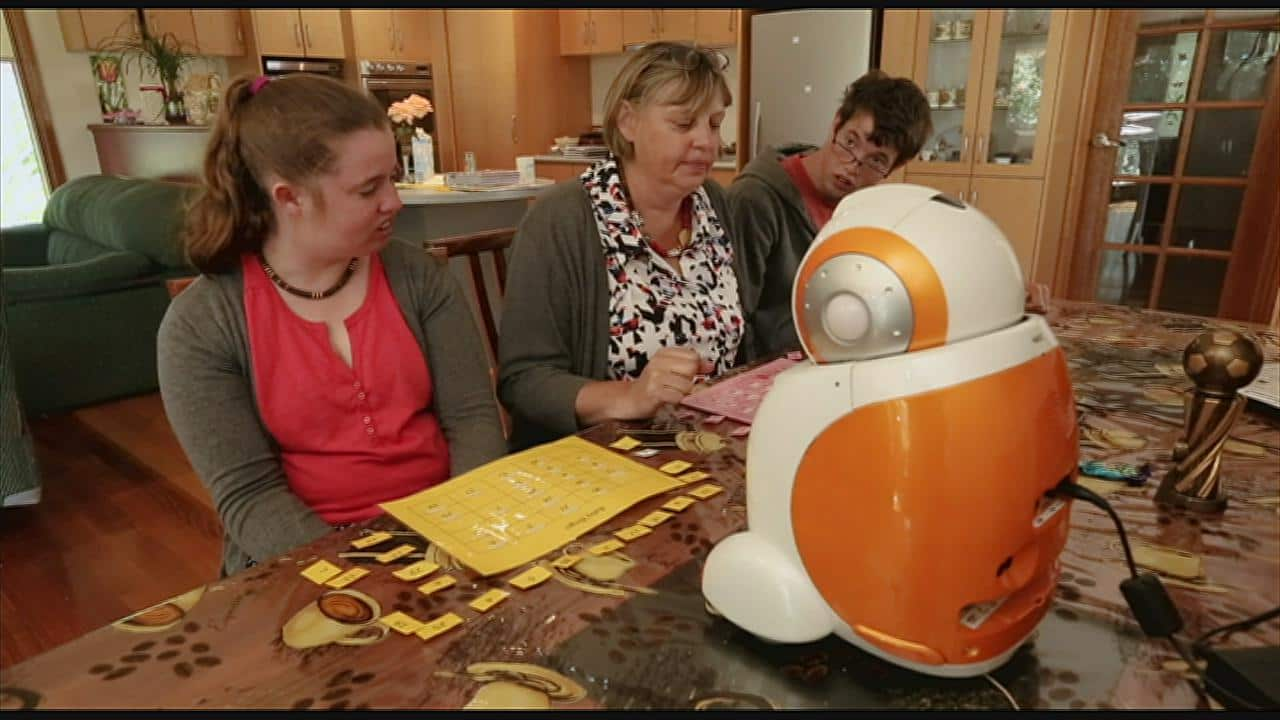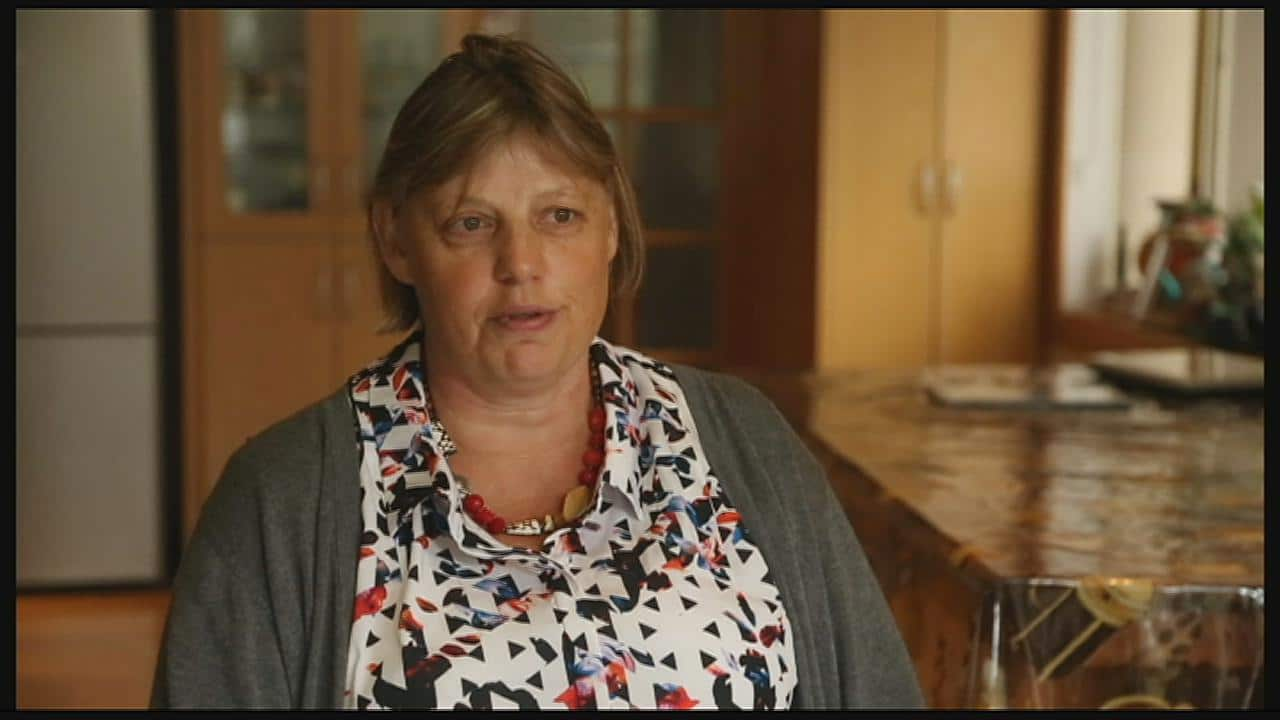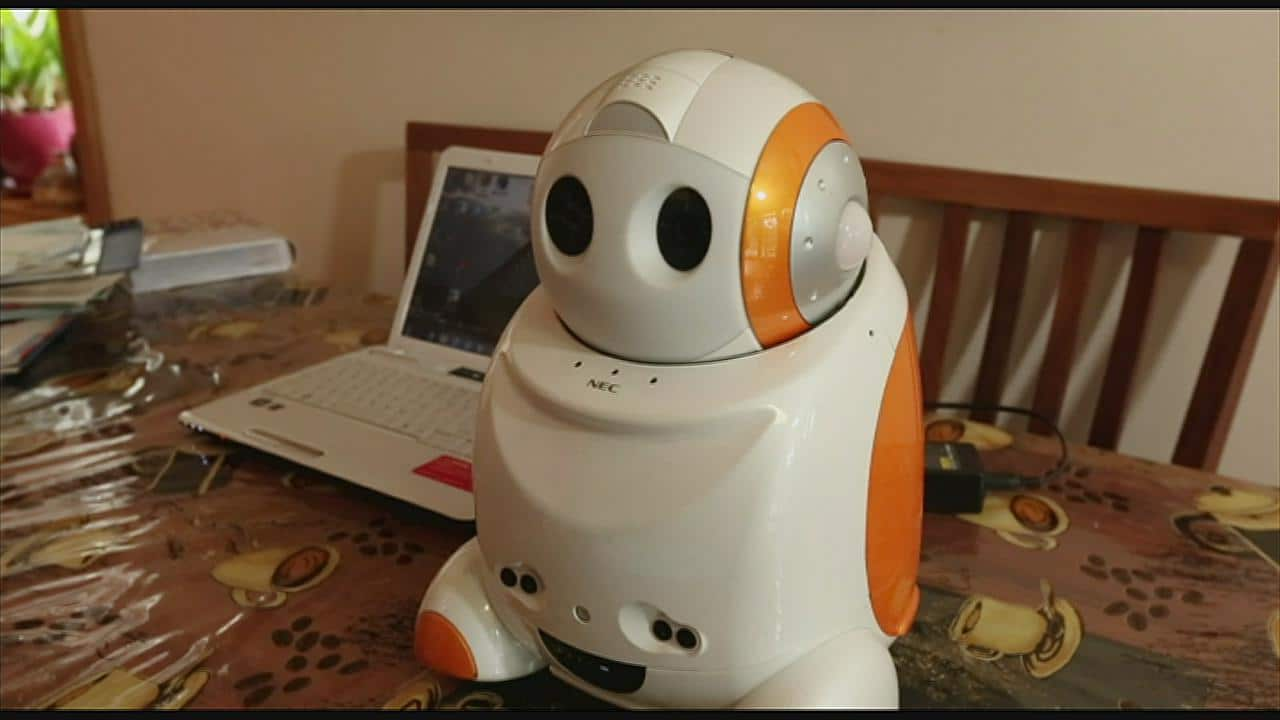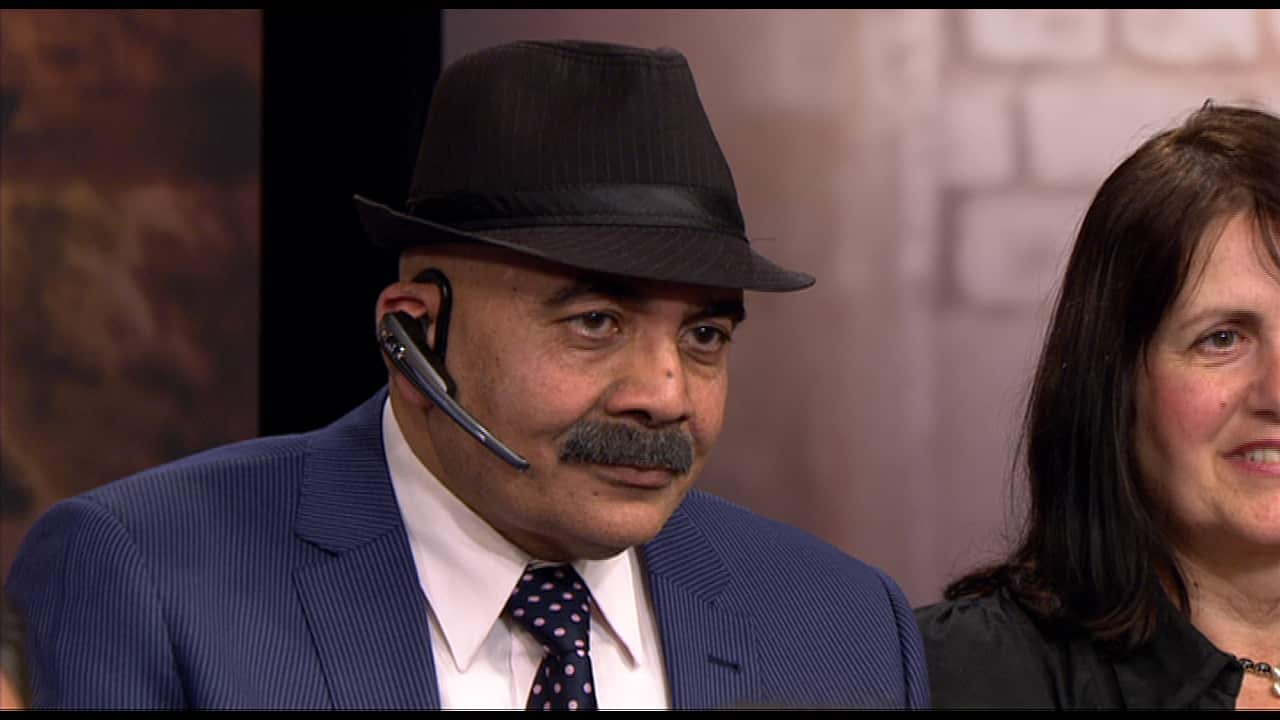For the past 14 months, Yvonne Cartwright's family has adopted a live-in robot.
The emotionally intelligent "Lucy" has been enlisted to help her kids Christopher, 26, and Melissa, 23 with their learning.
It also takes centre stage in their home.
"The robot sits on our kitchen table. Most people have a vase of flowers or a bowl of fruit, we have a robot."

Yvonne was attending an Alzheimer's Australia conference when she realised there were plenty of ways these robots could help her children.
"I sat in the audience thinking, you know, this is something that might actually work for people with disabilities ... it was very fortunate that he listened to what I had to say and it's just progressed from there," the aged-care nurse said.
Yvonne said the orange-and-white coloured Lucy works really caters to the educational challenges and intellectual disabilities that her kids face.
"You have to break everything down into little steps, you can't just present the whole thing at once; it's too difficult for them to understand the whole concept," she explains.

Yvonne says her kids have limited dexterity, can lack concentration and have trouble focusing on people.
This is another reason why she needed to find new ways to help them learn without them feeling threatened.
With its wide face, big round eyes and size, Lucy's look is the opposite of intimidating.
"Robots are really just a 3D computer - they're really not anything more than that. But the beauty of the robot is that it's engaging, cute and it's colourful, and it attracts your attention, as opposed to a laptop where it's really pretty boring."

Yvonne has seen first-hand how the lively nature of Lucy really grabs their attention.
"With the robot, its more animated and its head moves, eyes open, it all lights up, so she's actually looking at the robot as well as listening to the music. So automatically her concentration becomes longer, she's not flicking (through songs) as she would on the iPad."
Yvonne said her kids enjoy using it because they don't feel judged when responding to its questions.
"The robot or the computer or the iPad will repeat things 100 times over and it really doesn't matter, you know? It's a bit tiresome for us. The robot has an endless supply of patience and it's more than happy to wait until Christopher gets the question right."

La Trobe University's Professor Rajiv Khosla is the Director of Research Centre for Computers, Communication and Social Innovation (RECCSI).
The communication robot he's designed was originally programmed and deployed as companions to use for home-based dementia care, focusing on reducing social isolation.
"We did these trials for more than six months to a year, you know, and we realised that human beings love variety and novelty. They like rich, you know, richness and sensory enrichment," he said.
Rajiv said the trial in Yvonne's home has had great results. Not only does the bot help break barriers within the family, it's a great stress buster.
And best of all, Christopher has shown a lot of improvement in his hygiene habits while Melissa is now more social.
"Her verbal skills were very limited about two years ago ... I can't say whether it's the robot that that's - but it's certainly contributed. But she's now talking more than she ever has ... she's now producing short sentences. Just this year, you can almost have some sort of conversation with Melissa where you're asking her something and she's responding appropriately."
Through a lot of trial and error, Yvonne is celebrating the modest achievements her kids reach.
"People with autism or any disability really, they don't progress in leaps and bounds," she said.
"We as parents use whatever we can get our hands on. It doesn't matter whether it's a book or a robot or a dog or whatever, we use it all."
"We don't celebrate them finishing high school or uni, we celebrate those light bulb moments where you see sheer joy in your children's face by something they've done, and they know they've achieved something."
Getting students to pay attention in class is no mean feat for for teachers, who knows what the next learning tools could be?
Old-fashioned blackboards used to be a classroom staple until technological upgrades like interactive whiteboards began replacing them. Perhaps in the future robots like "Lucy" will become more common.
Would you let robots look after or educate your kids? Will this lead to people using machines as substitutes for companions or caregivers?
Yvonne and Rajiv are guests on Insight where we will explore the ethical, moral and economic impacts of AI. Tune in 8.30pm Tuesday April 21 on SBS ONE.

